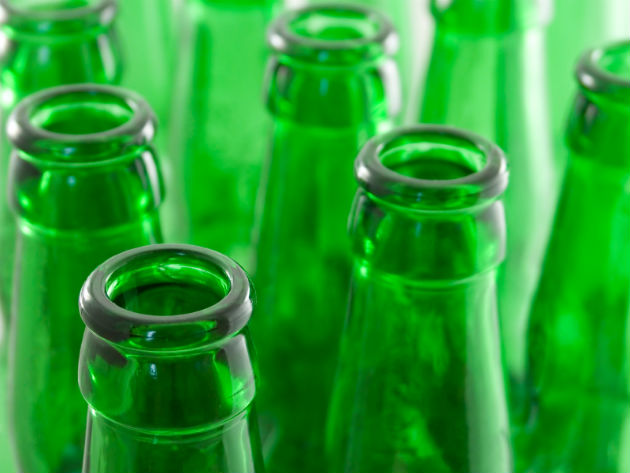Does your state have a Bottle Bill? These container deposit laws require that states offer a minimum refundable deposit on beer, soft drink and other beverage containers as a way to ensure a high rate of recycling or reuse.
Right now, 11 U.S. states offer bottle bills: California, Connecticut, Delaware (ends in 2011), Hawaii, Iowa, Maine, Massachusetts, Michigan, New York,
Oregon and Vermont.
Bottle bills aren’t a new idea; in fact, the deposit-refund system was created by the beverage industry as a means of guaranteeing the return of their glass bottles to be washed, refilled and resold.
How Bottle Bills work:
- A retailer buys beverages from a distributor, and a deposit is paid to the distributor for each can or bottle purchased.
- The consumer pays the deposit to the retailer when buying the beverage. When the consumer returns the empty beverage container to a retail store, redemption center or reverse-vending machine, the deposit is refunded.
- The retailer then recovers the deposit from the distributor, plus an additional handling fee in most U.S. states. The handling fee, which generally ranges from 1-3¢, helps cover the cost of transporting the containers for recycling.
There are few people that would object to a few more dollars in their pocket, so the cash incentive for recycling glass and aluminum beverage containers is obvious. But are there other benefits of passing a Bottle Bill?
Studies by the Container Recycling Institute have shown that states with bottle bills generally have much higher material recovery rates. This keeps container litter off the streets and supports the recycling industry, which needs a steady stream of recycled glass and aluminum to produce new containers with post-consumer content.
Not only do Bottle Bills keep more glass from wasting away in the landfill, but they also prevent the negative impacts of replacing those containers with new glass. Pound for pound,
replacement production also creates more pollution — in the air and water and on land — than recycling does.
If you’re wondering why so few states are taking advantage of this profitable process, it might help to point out some of the common myths about Bottle Bills. Some people dismiss bottle deposit programs because they claim that bottle bills are just another tax on consumers. But the bottle bill is not a tax since deposits are 100% refundable. Those who
do not redeem their containers make a voluntary choice not to do so, and therefore unclaimed deposits cannot be considered a tax.
Another common myth is that Bottle Bills become obsolete once a community has curbside recycling options. The assumption that states must choose between curbside programs and deposit laws is a myth perpetuated by the bottling. Recycling data has demonstrated that both systems are necessary, and when combined, guarantee the highest rate of glass and aluminum recycling.
If you want your state to implement a Bottle Bill, the Container Recycling Institute has developed an
online toolkit of resources you can use to build support and address opposition in your community.
